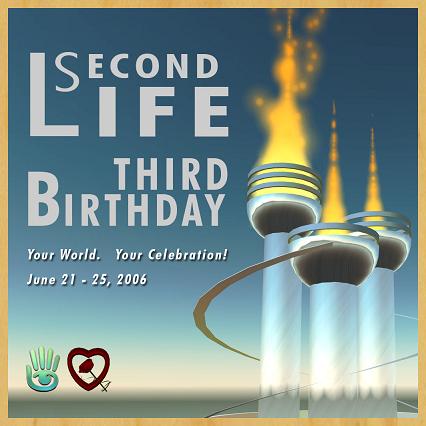Second Life as an entrepreneurship game
In 2002, the US Army had released a rather well-designed multiplayer game called America’s Army. For the eager gamers, this was perhaps the very first game that featured realistic details and sounds from real US weapons, something that allegedly had been forbidden thus far. I never played it beyond the “training area” (which was way too hard for me anyway), just watched other people playing, and remember to have exchanged a few messages with my brother, who was an eager player of AA. The whole point of the game was not to be “more realistic” than, say, CounterStrike or any other similar games, but the notion that you could measure leadership was intriguing. The US Army was interested to see how some of their citizens reacted in a field of battle; how they aggregated teams; how they charismatically gave orders to them; how they applied their intelligence and knowledge to a scenario and lead others to successfully complete a mission (scoring was perhaps a bit secondary to it; a better leader might deploy the troops in order that they finish together a mission, even though in terms of score, the leader might not do well — their task was mostly coordination, mission evaluation, correct deployment, and making sure the troops obeyed to the orders and kept to the plan). These leaders, of course, were good officer material, and it’s more than reasonable that the US Army would be very interested in contacting them and gently persuade them to engage a military career.
If the idea sounds weird or out of a science fiction book (Ender’s Game by Orson Scott Card comes to mind), it does — but perhaps not so much in 2009 as it did in 2002. Vast amount of academic research has been done to show how through gaming we earn new skills; that shouldn’t surprise us in the least, as almost all predator/hunting mammals do engage in “playing”, which the biologists believe is a successful training method to acquire, for instance, hunting skills.
So, well, clearly Second Life was not a first-person-shooting game, nor a strategic battlefield simulator. Nevertheless, it seemed to encourage users to be creative and sell their content, and clearly there was a “competition” going on — or else, why would all these people spend uncountable hours developing all those things, without stopping even for a break? There was definitely something going on, and I was unable to grasp it.
Since Linden Lab, the company, was unknown to me (although Philip Rosedale’s fame as the inventor of streaming would later on give me a hint on who they are), I wondered if it wasn’t just a front for the US Government, this time not to find out who is good at leading troops into battle — but to succeed in the tough business world.
After all, creating a social experiment to figure out who the best entrepreneurs are, through a “game”, and approaching them carefully in order to invest in them (by putting them in contact with venture capital firms and business angels) is not such a far-fetched idea. My own company, Beta Technologies, is participating in the development of something like that (a business game simulator to teach entrepreneurial skills) in an European project with several leading universities (and of course this is going to run on top of Second Life).
But this is 2009, where everything is supposed to be clear 🙂 Back in 2004, I had really no clue if Second Life wasn’t merely a simulator to let psychologists, sociologists, and anthropologists take all sorts of measurements on human behaviour in a virtual world, extract some metrics, and figure out who’s the best business person, and chat with them to help them launch a successful business in real life.
I know, the idea sounds ludicrous now 🙂 And I think I extracted a few laughs from the old-time Lindens when I told them what I though about Second Life. Let’s say that I couldn’t be more wrong; the whole concept, in the early days of SL, couldn’t be more opposed to that: it was the left-wing libertarian days of Linden Lab, and “business” was so far away from their minds that it was just another planet.




